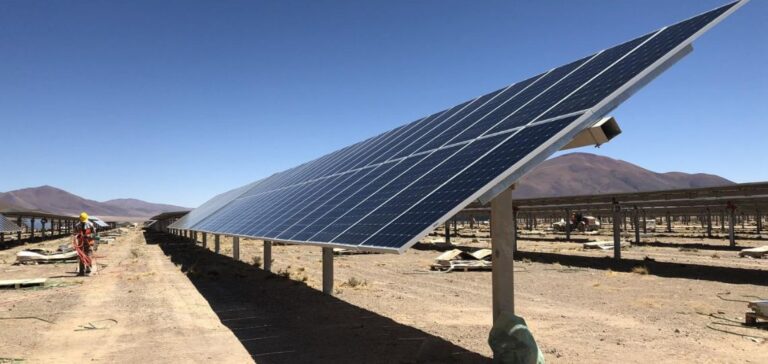Kadri Simson, European Commissioner for Energy, is making an official visit to Chile and Argentina this week to deepen cooperation in the energy sector. The main aim of this initiative is to strengthen partnerships in the fields of renewable energies and hydrogen, in line with the European Union’s energy transition objectives.
Strategic Meetings in Chile
In Santiago de Chile, Commissioner Simson has scheduled a series of crucial bilateral meetings with key government officials, including Energy Minister Diego Pardow Lorenzo and Foreign Minister Alberto van Klaveren. Discussions are also scheduled with the Executive Vice-President of the Corporación de Fomento de la Producción (CORFO), José Miguel Benavente, and the Executive Secretary of the Economic Commission for Latin America and the Caribbean (ECLAC), José Manuel Salázar-Xirinachs. The aim of these meetings is to consolidate existing collaborations and explore new opportunities in the field of clean energy. Renewable energy projects are also multiplying in Chile, as in the case of the two wind farms recently installed by Colbún in the north of the country.
Promoting Green Hydrogen
Simson will also be taking part in the “Global Gateway Investment Agenda – Team Europe Initiative RH2 Development Chile” event. This event will highlight the European Union’s initiatives to promote the development of hydrogen. She will also visit local energy projects, including those funded by the Euroclima program.
High-Level Energetic Dialogue in Argentina
In Argentina, Kadri Simson will co-chair the EU-Argentina High-Level Energy Dialogue with Eduardo Rodríguez Chirillo, Secretary of Energy. This dialogue, scheduled to take place in Buenos Aires, will address the challenges of the energy transition and the role of hydrogen. She will also be speaking at the German-Argentine Chamber of Commerce and Industry to discuss future energy prospects.
Meetings with Argentine economic players
The visit to Argentina includes meetings with Luis Caputo, Minister of Finance, and Diana Mondino, Minister of Foreign Affairs. Exchanges with several operators in the energy sector are also on the agenda. Finally, the Commissioner will visit projects supported by AL INVEST Verde to observe sustainable development efforts in the energy sector.
This mission underlines the European Union’s commitment to strengthening international partnerships in the energy field. Chile and Argentina, with their renewable potential, play a key role in this strategy.





















